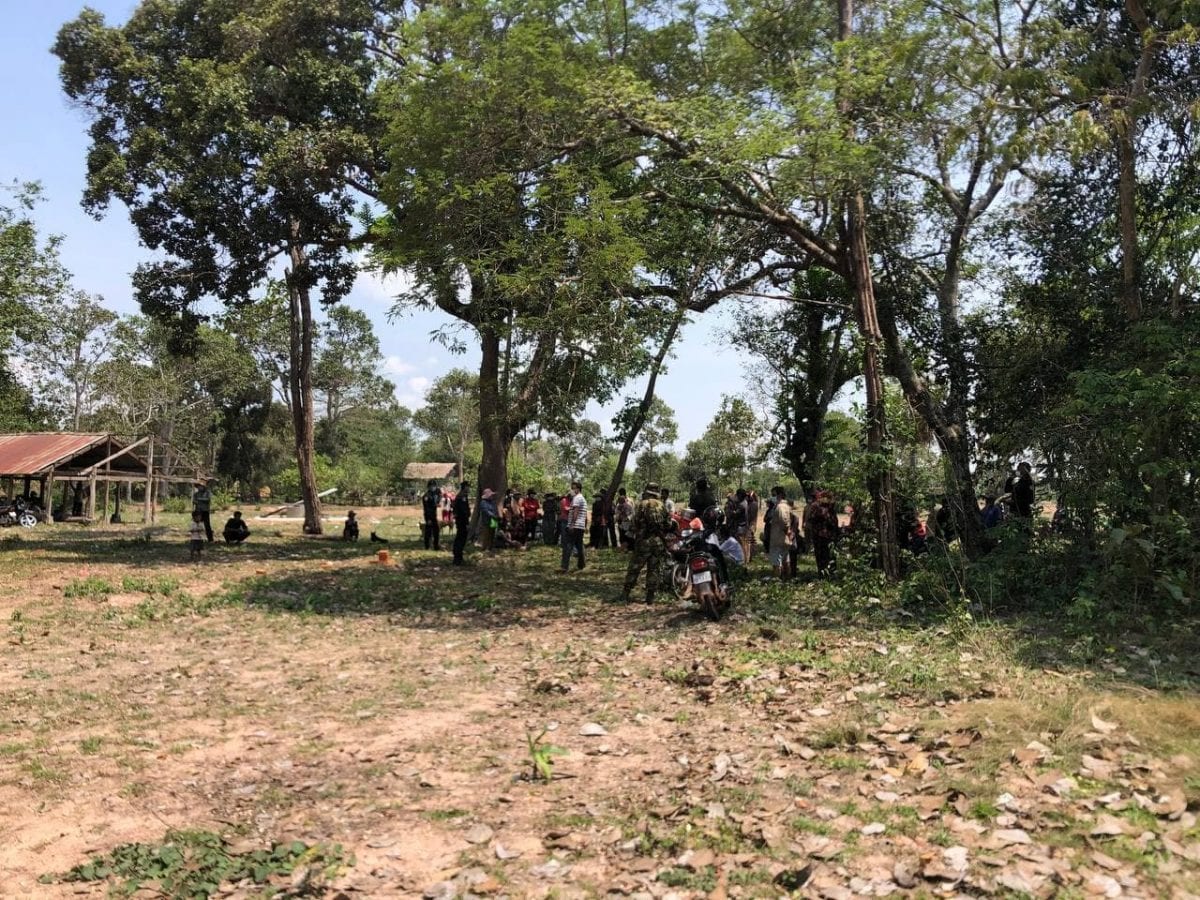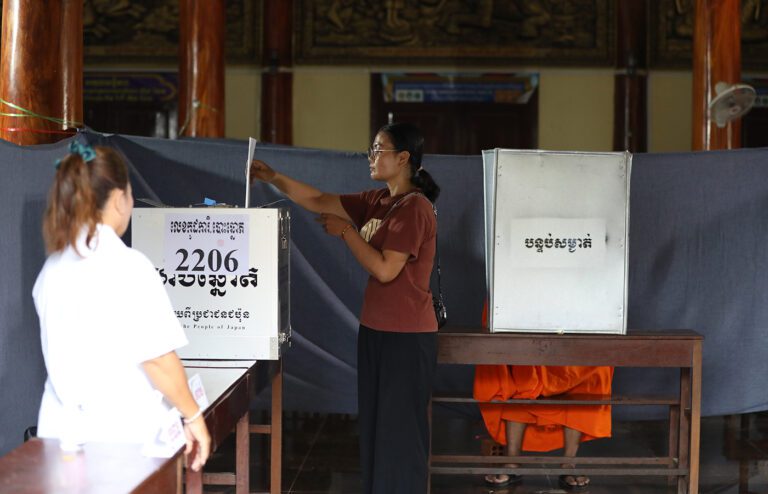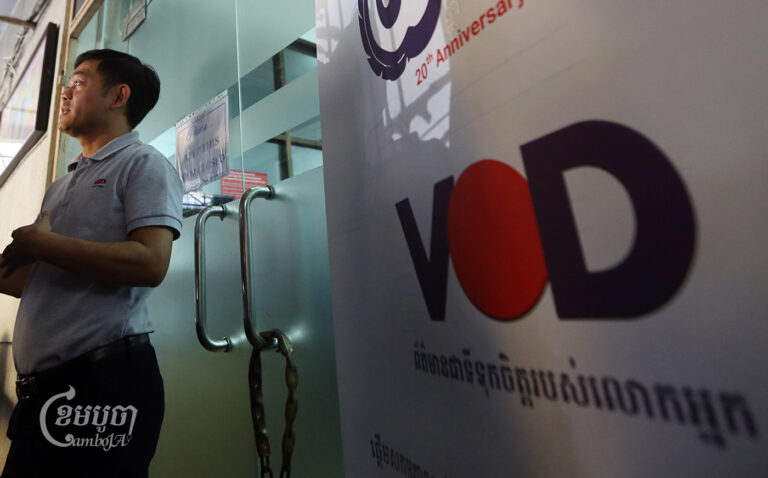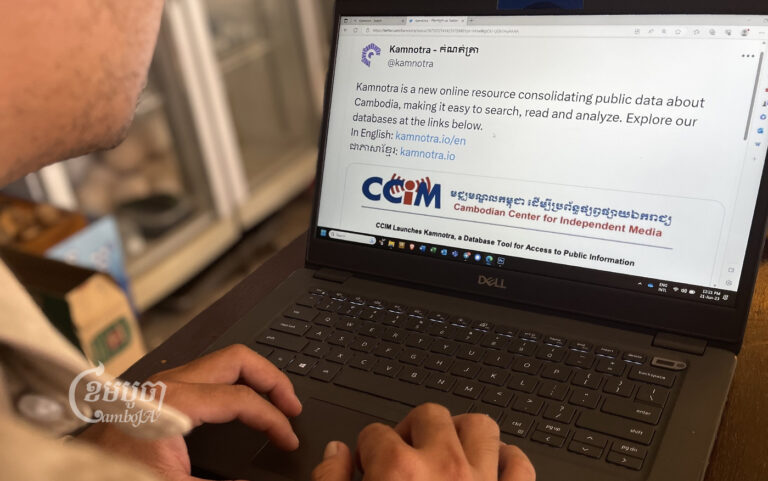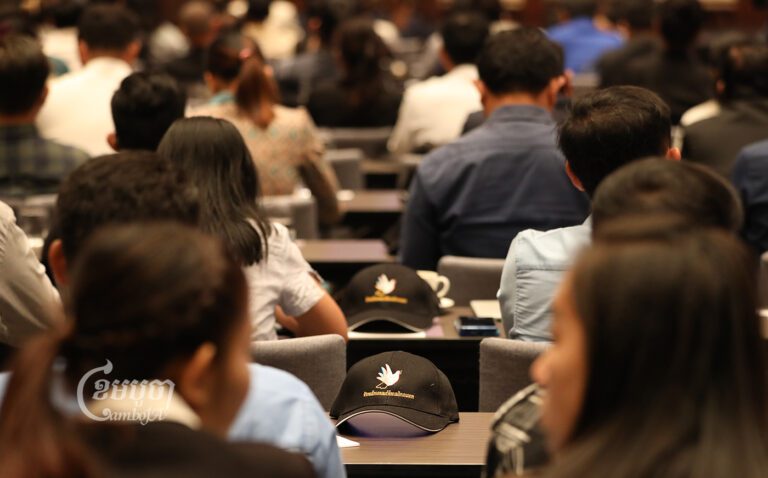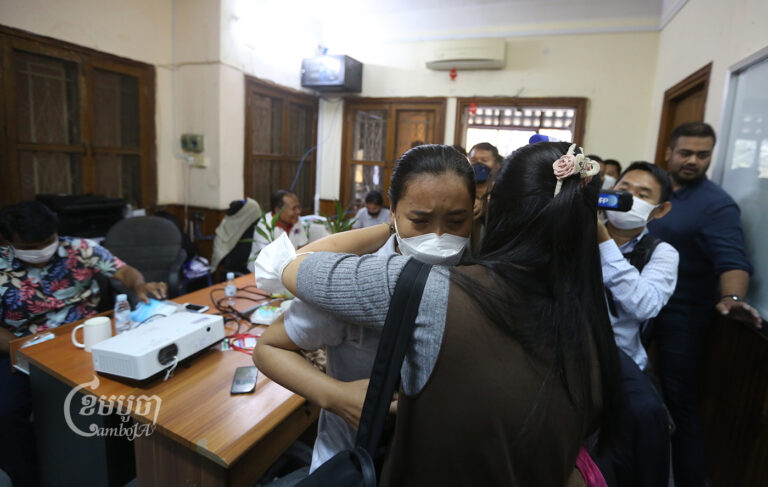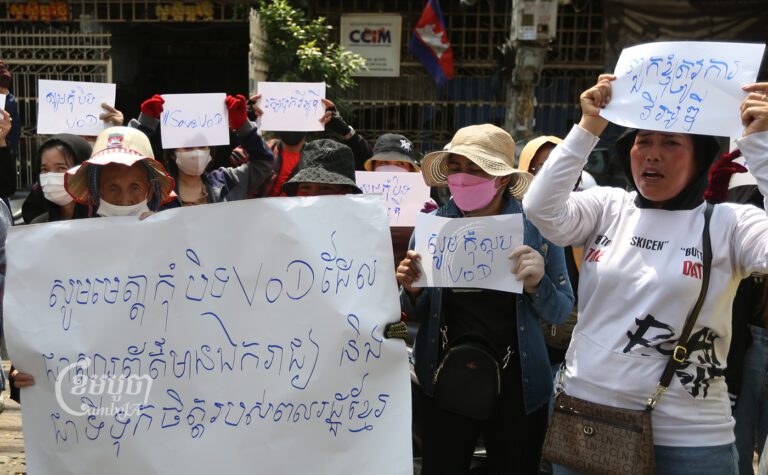Two digital news journalists reported harassment by authorities Tuesday while covering villagers protesting two separate land disputes.
Though government officials dismissed the confrontations with reporters from outlets VOD and TN Hot News as a matter of enforcing public order, media advocates are again sounding the alarm of ever-tightening restrictions of press freedom in Cambodia.
VOD reporter Khut Sokun, 33, said he had arrived at about 11 a.m. at the scene of a dispute in the Krakor district of Pursat province when an armed man in military uniform approached and seized his smartphone, recorder and notebook.
“I parked my motorbike and rushed to report,” Sokun told CamboJA of the day’s work in Ansar Chambak commune. “I turned on my recorder, and wrote what they were saying, but after that one official came to ask my identity, and where I had come from.”
Authorities had come to tell villagers mostly from the nearby Boribor district of Kampong Chhnang province to stop cultivating paddy rice in a location deemed state land, an area that authorities are measuring to reserve as a social land concession. They had come on Tuesday with military police, at least one of whom eventually focused on Sokun.
“I told him that I am a reporter at VOD, and I came to report something related to land issues, and he asked me to delete the pictures I’d taken from my smartphone,” Sokun recalled. “A man with a RCAF uniform and an AK-47 confiscated my recorder and notebook. They also tore up my notes of what I wrote and [deleted] audio from the recorder.”
Sokun said authorities returned his equipment more than a half-hour after talking with Pursat province Deputy Governor Cheng Lai, who had led the meeting to resolve the dispute.
“I tried to ask him why they didn’t allow pictures and reporting, but they did not tell me the reason,” Sokun said. “I think that it was threatening, intimidation, and it has restricted the right of press freedom because I did nothing wrong. I just went down to report and listen to what [the villagers] were saying.”
A VOD colleague who interviewed Cheng Lai after the incident told Sokun the deputy governor had claimed informally that his reporting on Tuesday had caused incitement among the villagers, a potentially serious charge often used to silence dissent. After hearing of this allegation, Sokun said that he is now scared to report land disputes in that area.
“Now, I dare not report this story because I am afraid of the accusation. I am also living near that area,” he said. “And yes, I am worried about my security and safety.”
Lai denied the accusation of harassment to CamboJA, saying officials had confronted the journalist only to learn who he was. Though he confirmed Sokun’s recorder had been confiscated and later returned, he denied that anyone had destroyed the reporter’s notes.
“Our authorities were working [to resolve the land dispute] and we did not know who he was, and at that time there were military police, police and soldiers accompanying me,” he said.
“We just asked what he was doing,” Lai said, adding that any claim otherwise was subjective. “It is just their opinion, because no one threatened him.”
As for the land dispute, Lai said people who have cultivated the area for a long time will be excluded from government action but that newcomers will have their access revoked. He said a directive was issued in 2017 to prepare a 5,400 hectare social land concession to benefit 3,000 families in the Ansar Chambak commune.
Though the deputy governor described the encounter with Sokun as benign, at least one witness described it otherwise.
“In fact, I saw they [authorities] scuffled with him, seized his phone and deleted pictures, and checked his press card,” said Pen Phol, 43, who attended Tuesday’s meeting and said authorities had not allowed photography and reporting. “I feel pity for him because he is a journalist that comes to help villagers who are suffering.”
After the confrontation, Phol said she didn’t see anything else, as authorities then dispersed the gathered villagers.
Phol is now concerned authorities will take her land away, noting that her family has been cultivating about 2 hectares since the 1980s.
“I am worried because I heard that they will revoke our land and provide it to other villagers,” she said.
When asked about the incident at Ansar Chambak, Information Ministry spokesman Meas Sophorn said local authorities had only implemented the law in their jurisdiction to maintain security and public order.
“Authorities and police have their duty to fulfill too,” he said, declining to comment further.
But Sokun wasn’t the only reporter to face a confrontation Tuesday from authorities while reporting on a land dispute case.
Keo Ratana, 36, journalist and publisher of TN TV, or TN Hot News Online, said that he suffered harassment while covering villagers protesting that same day against a decision of the Kampong Chhnang Provincial Court in favor of a wealthier landholder.
The protest was complicated when a bodyguard named Lon Leng intervened apparently on behalf of the landholder and, according to Ratana, physically confronted the journalist at the event. Ratana said Pheng ordered police to detain the reporter, but the officers did not due to the many villagers around him.
“He came and pushed me away and attempted to use violence, and I pushed his hand back,” Ratana said of the bodyguard. “As a journalist, I think it is a threat to press freedom as we carry out our professional journalism.”
Ratana was previously arrested in July 2019 by military police for his role in covering a long-running land dispute in Sihanoukville between local villagers and the Thai Boon Roong development company.
Ith Sothoeuth, media director at the Cambodian Center for Independent Media, condemned the harassment against working journalists who amplify important viewpoints for the public to hear.
“For me, it seriously threatens press freedom because journalists have just gone to fulfill their duty in reporting land disputes between villagers,” he said of the Tuesday incidents.
Sotheouth, whose center produces VOD, said the media plays a significant role in a democratic society by providing voices for those who can’t express their concerns by themselves to the government or the general public.
“It is an extreme violation of press freedom in Cambodia, while it has already narrowed its space,” he said, pointing to the confrontation in Ansar Chambak.
Nop Vy, executive director at CamboJA, said that any activities that obstruct the work of journalists run directly against government policy to cooperate with the press.
“It is a message of warning and intimidation to the duty of journalists,” he said, urging officials and the head of state to review law enforcement policies of lower authorities and advise them on correct implementation.


